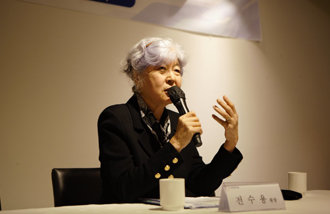How long will confusion with real estate tax be neglected?
How long will confusion with real estate tax be neglected?
Posted December. 24, 2021 07:44,
Updated December. 24, 2021 07:44
There is a growing concern among homeowners regarding the posted prices of multi-family housing, such as apartment houses, to be announced in March. As the posted prices of standard lands and detached houses rose 10.2 percent and 7.4 percent, respectively, according to Tuesday’s announcement, the posted prices of apartment houses whose prices rose drastically will be higher, further increasing property tax and gross real estate tax. The government pushed by the ruling Democratic Party of Korea said it will come up with measures to reduce property tax but as the announcement of the measures is scheduled for March next year when the presidential election will take place, it’s sincerity is doubtful.
According to the Korea Real Estate Board, the sales prices of apartment units across the country rose 13.7 percent on average this year until November, which is the highest increase since relevant statistics were first collected. As the government plans to match posted prices to 90 percent of market prices, posted prices will increase at a faster pace than market prices. Given the fact that the average prices of apartment units rose 7.6 percent last year while their posted prices soared 19.1 percent, next year’s increase rate is likely to be over 20 percent. In particular, property tax will experience even a sharper increase than posted prices as it is cumulative. Many people will have to pay higher national health insurance premiums due to the higher posted prices of their houses, and some retired senior households will be excluded from welfare benefits, such as basic pensions.
The Ministry of Economy and Finance, which has been arguing until a month ago that only two percent of people pay gross real estate tax, finally decided to put forward measures to reduce property tax with a focus on single-home owners in March due to pressure from the ruling party in consideration of the presidential election. However, most measures under review have clear limitations or side effects. If property tax is charged on the basis of this year’s posted prices according to the ruling party’s request, taxpayers will pay the same amount of tax next year but have to pay two years’ increase in tax in the year after that. A measure to decrease the maximum increase rate of property tax from the previous year requires the revision of a relevant bill, which takes time. Reducing the fair market value ratio, which is used to calculate tax, only requires the revision of an enforcement ordinance but does not have much practical impact.
Revising the tax system haphazardly can be only a temporary measure and will create more chaos in the real estate tax system, which is already under criticism for being random. It can further increase confusion by damaging the tax system’s predictability and consistency. A measure to temporarily ease transfer tax for multi-homeowners, which was mentioned by presidential candidate Lee Jae-myung and the ruling party, was opposed by Cheong Wa Dae and the government, which added more market confusion. If the ruling party believes that there are issues with the punitive real estate tax system, it should begin revising relevant laws, rather than urging the government to come up with measures in time for the presidential election.
Headline News
- US: Japan will double its defense budget, and so should S. Korea
- Trump's win could present opportunities for S. Korean defense firms
- ‘Don’t expand the war in Ukraine,’ Trump tells Putin
- Korean fencing men's sabre wins World Cup team event
- Yoon who should take the lead and reinvent for the second half of his term







